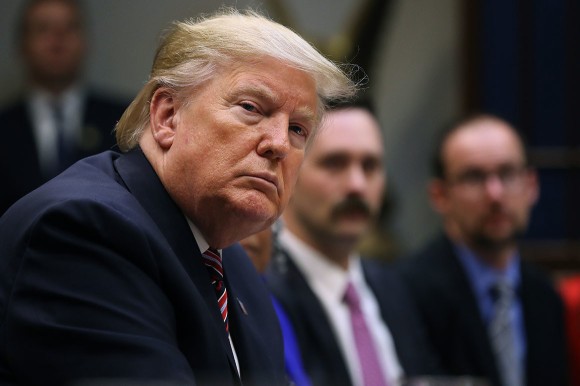Pressure is growing for Mexican authorities to release prominent labor lawyer Susana Prieto, arrested a week ago at a protest, with two U.S. unions concerned about a rights clampdown ahead of a new regional trade deal.

Prieto, who last year helped organize unprecedented strikes at several dozen manufacturing plants in the northern border city of Matamoros, was charged with threats, inciting a riot, coercion and crimes against public servants. She has denied the charges.
With the United States-Mexico-Canada Agreement (USMCA) set to go into effect on July 1, U.S. unions are concerned the detention undermines Mexico’s pledge to protect workers’ rights, a central aim of the trade pact.
Prieto could remain in jail until late July as investigators probe the case, the Tamaulipas state attorney general’s office said following her June 8 arrest in Matamoros. A state judge rejected Prieto’s requests to be released while the case is pending.
“This clearly is intended to and will undoubtedly have a chilling effect on workers who are forced to make a life and death decision every day before they go to work under dangerous working conditions,” United Auto Workers union spokesman Brian Rothenberg said in a statement on Tuesday.
“It signals a very real challenge for the Mexican government to implement the reforms agreed upon by the U.S. and Mexico under USMCA.”
Richard Trumka, president of the AFL-CIO, the largest U.S. coalition of labor unions, called the charges “trumped up.”
“As we approach entry into enforcement of the United States-Mexico-Canada Agreement, Mexico must live up to its commitments to respect fundamental workers’ rights,” Trumka said in a recent statement.
In his regular news conference last Friday, Mexican President Andres Manuel Lopez Obrador said he was tracking the matter, but that only state officials could handle the case. He warned against fabricated charges or “retaliation,” without providing further detail.
Tamaulipas Attorney General Irving Barrios Mojica said the charges stemmed from a complaint from a labor board in Matamoros about a protest by about 400 workers outside its doors last March. The group was accused of being violent and threatening government workers.
When asked for comment, Mexico’s labor ministry told Reuters the case involved criminal charges, not a labor dispute.
Prieto’s daughter Maria Fernanda Peña said in an interview with Reuters on Monday that the group had been calm and had waited hours to request a change of union representation.
“She is a political prisoner. These crimes are not real,” said Peña, 23.
Two videos from that day posted by a local news site showed at least several dozen people clustered peacefully at the labor board’s front door.
Prieto does not appear in the videos and Peña said she was not there the full day because she was sick. The attorney general’s office insisted that Prieto, who last year founded an independent union, a relative rarity in Mexico made possible by a new law, was present.
In a handwritten letter posted by her daughter on social media, Prieto urged her “beloved workers” – who have turned out in the dozens in recent days to protest her arrest – to maintain their advocacy.
“They want me to plead guilty of crimes I did not commit, but dignity, honor, integrity and pride cannot be bought,” she said.
Taken From: https://ca.reuters.com

